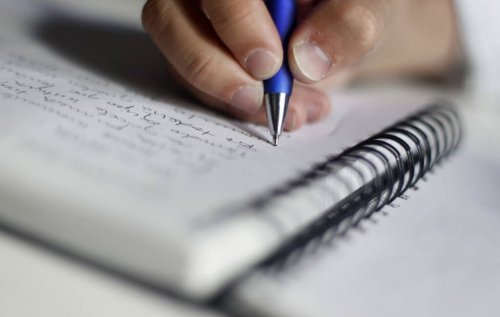Learn 5 Ways to Optimize Your Memory

Our memories allow us to decode, store, and retrieve information. Our memories are important. This is the reason why most of us would like to find ways to optimize our memory. However, is it possible to find practical methods to increase our ability to store and remember information?
The answer to this question is yes. Studies have revealed an array of strategies that we can use to improve our memories. The best ones are the keyword technique, the method of loci, the phenomenon of specific coding, the organization of material, and the organization of notes, among others. Let’s delve deeper into them.
Using the keyword technique to learn other languages
Imagine you’re in a class learning a second language. You need to learn long vocabulary lists to understand what’s going on in the class. One way to make this easier is to use the keyword technique.
Through the keyword technique, we relate an unfamiliar word to a common word in English that has a similar sound. The word in English is the keyword. Once you have a keyword, you have to form a mental image of it by “interacting” visually with the translation.

For example, you can think of a doctor who examines a duck to remember the word “duck” or a doctor who pokes your eye and says “Oh!” to remember the word “eye”. This technique helps you learn more vocabulary than you would with repetition.
“Never keep in your head what fits in your pocket.”
-Albert Einstein-
The loci method
When famous Greek orators tried to memorize long speeches, they used the loci method. In Latin, loci means places. They used it to organize their speeches in a logical way. By using this method, we assume that each part of the speech has its own location within the speech’s organization.
For example, you may think that your speech’s introduction is your home’s hallway. The most important topic would be in the bedroom. The next topic is located in the dining room, and so on.
We can manipulate this technique to learn lists of words. Each word in the list is located in a series of sequential locations. This method works best if you use extravagant images.
The phenomenon of specific coding
Some researchers suggest that we recover information better in an environment similar to the one we were in when we learned the word. Tulving and Thompson discovered his phenomenon, called “specific coding” in 1973.
You can do better in an exam if you study in the same classroom where the exam will take place. On the other hand, the characteristics of the exam, such as the questions in it, are sometimes so different that they can outweigh the more subtle cues related to specific coding and information storage.
“Memory is like a bad friend. It fails you when you need it the most.”
-Proverb-

Organize material to optimize your memory
Most day-to-day memory tasks don’t involve lists of words, but rather texts that we’ve read. How can we better remember information we read? A proven technique for better remembering written material is to organize it in our memory when we read it the first time.
To do this, we have to know the text’s structure and content by taking a look at the index, headings, and other markers. You need to do this before you read the text in the chapter or section. Understanding the material’s structure will allow you to remember the content more easily.
“We are our memory, we are that chimerical museum of shifting shapes, that pile of broken mirrors.”
-J.L. Borges-
Another technique is to ask ourselves questions about the material that we’re trying to learn and then answer the questions later. Asking questions allows us to make connections and discover relationships between different specific facts. This facilitates the way we process and remember material.
Organize notes to help you remember
“Less is more.” Perhaps this is the most appropriate saying when it comes to creating notes to facilitate recall. Instead of trying to write down all the details from a meeting, it’s better to listen and think about the material. After you’ve absorbed the information, you should write down the most important things.

It’s more important to think about the material before immediately writing it down. This is one of the reasons why borrowing someone else’s notes isn’t a good idea. You need a frame of reference in your memory to help you understand what was written down.
These five techniques can help you optimize your memory so that you can consolidate knowledge. We encourage you to put these tips to the test!
Our memories allow us to decode, store, and retrieve information. Our memories are important. This is the reason why most of us would like to find ways to optimize our memory. However, is it possible to find practical methods to increase our ability to store and remember information?
The answer to this question is yes. Studies have revealed an array of strategies that we can use to improve our memories. The best ones are the keyword technique, the method of loci, the phenomenon of specific coding, the organization of material, and the organization of notes, among others. Let’s delve deeper into them.
Using the keyword technique to learn other languages
Imagine you’re in a class learning a second language. You need to learn long vocabulary lists to understand what’s going on in the class. One way to make this easier is to use the keyword technique.
Through the keyword technique, we relate an unfamiliar word to a common word in English that has a similar sound. The word in English is the keyword. Once you have a keyword, you have to form a mental image of it by “interacting” visually with the translation.

For example, you can think of a doctor who examines a duck to remember the word “duck” or a doctor who pokes your eye and says “Oh!” to remember the word “eye”. This technique helps you learn more vocabulary than you would with repetition.
“Never keep in your head what fits in your pocket.”
-Albert Einstein-
The loci method
When famous Greek orators tried to memorize long speeches, they used the loci method. In Latin, loci means places. They used it to organize their speeches in a logical way. By using this method, we assume that each part of the speech has its own location within the speech’s organization.
For example, you may think that your speech’s introduction is your home’s hallway. The most important topic would be in the bedroom. The next topic is located in the dining room, and so on.
We can manipulate this technique to learn lists of words. Each word in the list is located in a series of sequential locations. This method works best if you use extravagant images.
The phenomenon of specific coding
Some researchers suggest that we recover information better in an environment similar to the one we were in when we learned the word. Tulving and Thompson discovered his phenomenon, called “specific coding” in 1973.
You can do better in an exam if you study in the same classroom where the exam will take place. On the other hand, the characteristics of the exam, such as the questions in it, are sometimes so different that they can outweigh the more subtle cues related to specific coding and information storage.
“Memory is like a bad friend. It fails you when you need it the most.”
-Proverb-

Organize material to optimize your memory
Most day-to-day memory tasks don’t involve lists of words, but rather texts that we’ve read. How can we better remember information we read? A proven technique for better remembering written material is to organize it in our memory when we read it the first time.
To do this, we have to know the text’s structure and content by taking a look at the index, headings, and other markers. You need to do this before you read the text in the chapter or section. Understanding the material’s structure will allow you to remember the content more easily.
“We are our memory, we are that chimerical museum of shifting shapes, that pile of broken mirrors.”
-J.L. Borges-
Another technique is to ask ourselves questions about the material that we’re trying to learn and then answer the questions later. Asking questions allows us to make connections and discover relationships between different specific facts. This facilitates the way we process and remember material.
Organize notes to help you remember
“Less is more.” Perhaps this is the most appropriate saying when it comes to creating notes to facilitate recall. Instead of trying to write down all the details from a meeting, it’s better to listen and think about the material. After you’ve absorbed the information, you should write down the most important things.

It’s more important to think about the material before immediately writing it down. This is one of the reasons why borrowing someone else’s notes isn’t a good idea. You need a frame of reference in your memory to help you understand what was written down.
These five techniques can help you optimize your memory so that you can consolidate knowledge. We encourage you to put these tips to the test!
All cited sources were thoroughly reviewed by our team to ensure their quality, reliability, currency, and validity. The bibliography of this article was considered reliable and of academic or scientific accuracy.
- Anderson, J. R., & Milson, R. (1989). Human Memory: An Adaptive Perspective. Psychological Review. https://doi.org/10.1037/0033-295X.96.4.703
- Jaeggi, S. M., Buschkuehl, M., Jonides, J., & Perrig, W. J. (2008). Improving fluid intelligence with training on working memory. Proceedings of the National Academy of Sciences. https://doi.org/10.1073/pnas.0801268105
- Rudebeck, S. R., Bor, D., Ormond, A., O’Reilly, J. X., & Lee, A. C. H. (2012). A Potential Spatial Working Memory Training Task to Improve Both Episodic Memory and Fluid Intelligence. PLoS ONE. https://doi.org/10.1371/journal.pone.0050431
- Morrison, A. B., & Chein, J. M. (2011). Does working memory training work? the promise and challenges of enhancing cognition by training working memory. Psychonomic Bulletin and Review. https://doi.org/10.3758/s13423-010-0034-0
This text is provided for informational purposes only and does not replace consultation with a professional. If in doubt, consult your specialist.







